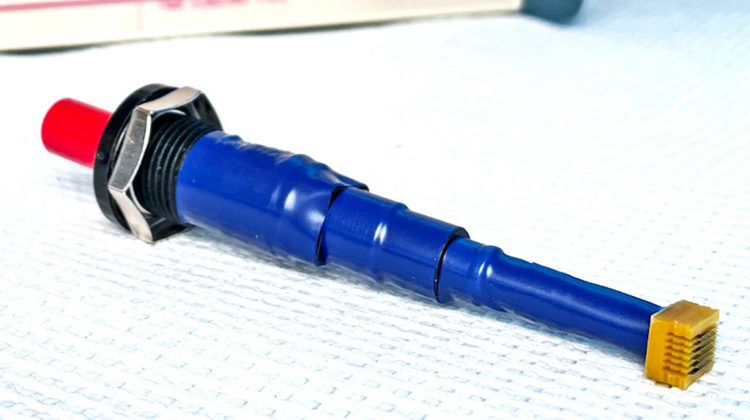
A team of Georgia Institute of Technology and Emory University researchers has developed and tested an innovative handheld electroporator for delivering vaccines that requires no batteries and can be mass produced at low cost.
Electroporation uses short electric pulses to drive molecules into cells. The technique, which is commonly employed in research labs, currently requires large, complex and costly equipment, severely limiting its use for vaccine delivery. In contrast, the novel device created by the Georgia Tech team is the size of a pen.
‘My lab figured out that you could use something all of us are familiar with on the Fourth of July when we do a barbecue – a barbecue lighter,’ said Saad Bhamla, assistant professor in the School of Chemical and Biomolecular Engineering.
Electronic barbecue lighters, when clicked, generate a brief pulse of electricity. Bhamla’s team removed the inner workings of a lighter and reengineered them into a tiny spring-latch mechanism, creating a device that creates the same electric field in the skin as the large, bulky electroporation machines already in use.
‘Our aha moment was the fact that it doesn’t have a battery or plug into the wall, unlike conventional electroporation equipment,’ Bhamla explained. ‘And these lighter components cost just pennies, while currently available electroporators cost thousands of dollars each.’
The team paired the reimagined device with microneedle technology from Georgia Tech’s Laboratory for Drug Delivery to create the ‘ePatch’. The key innovation here involved tightly spacing the electrodes and using extremely short microneedles. Microneedles are commonly used in cosmetics to rejuvenate skin and for some medical applications, but they generally aren’t used as electrodes. By coupling the tiny electroporation pulser with microneedle electrodes, the researchers created an effective electrical interface with the skin and further reduced the ePatch’s cost and complexity.
‘Our goal was to design a method for Covid-19 vaccination that uses a device that is simple, low-cost and manufacturable,’ said Dengning Xia, who was lead author on the study while working as a research scientist at Georgia Tech and is now an associate professor at Sun Yat-sen University in China.
In order to test whether the system could be used with a vaccine to generate an immune response the researchers tested the delivery system on mice using an experimental DNA vaccine for Covid-19.
‘Surprisingly, even in the first try, it went far beyond my expectations,’ said Chinglai Yang, associate professor in the Department of Microbiology and Immunology at Emory University School of Medicine. ‘Using this method with the same amount of vaccine, the ePatch induced an almost tenfold improved immune response over intramuscular immunization or intradermal injection without electroporation. It also showed no lasting effects to the mice’s skin. What this means is that it is easier to achieve protection.’
Genetic vaccines, such as those being used to protect against Covid-19 are currently expensive because they either require a complicated cold chain and costly manufacturing or need a sophisticated electroporation device for delivery. ‘The Georgia Tech portable and affordable electroporation ePatch can overcome these limitations and can be a potential game changer in the vaccine delivery arena,’ said Nadine Rouphael, professor of medicine and executive director of the Hope Clinic at the Emory Vaccine Center.
The researchers predict that it will be more than five years before the invention will complete clinical study and be ready for widespread use. Their findings have been published in the Proceedings of the National Academy of Sciences.



